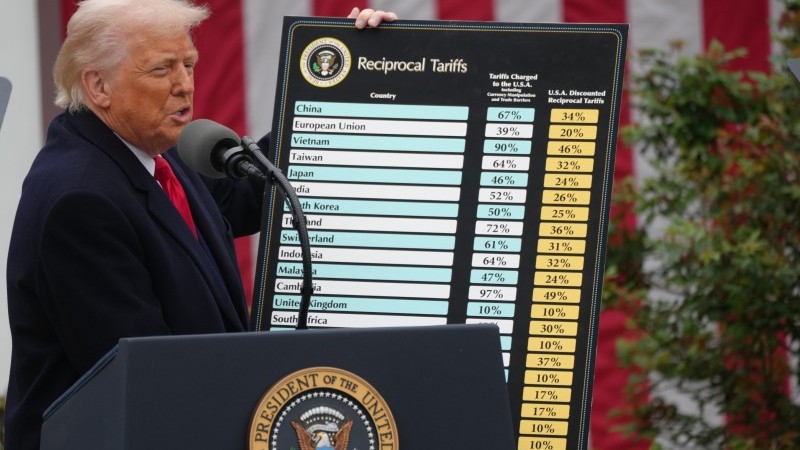Business
Companies Pay Less Tax in Q1 2024 Amid Worsening Economy

A recent review of the Company Income Tax (CIT) report for the first quarter of 2024 reveals a significant decline in income tax payments by companies in various sectors, highlighting the economic challenges faced by businesses in Nigeria.
Decline in CIT Payments
The CIT report indicates that companies in 14 out of 21 sectors experienced a decrease in tax payments, leading to a 12.87% overall decline in CIT collection for the quarter. CIT is levied on companies with a turnover of N25 million and above, at rates of 20% for turnovers between N25 million and N100 million, and 30% for turnovers exceeding N100 million.
Key sectors that saw notable declines include:
- Manufacturing: The largest drop, with CIT payments plummeting by 70.24%, from N145.06 billion in Q4 2023 to N43.17 billion in Q1 2024.
- Electricity, Gas, and Steam Supply: A 69.14% decline, from N16.83 billion to N5.19 billion.
- Agriculture: A 59.31% decrease in CIT payments.
- Arts and Entertainment: A 56.19% decline.
Other sectors with reduced CIT payments include transport services (-45.49%), wholesale and retail trade (-39.66%), real estate services (-40.64%), and human health and social work (-16.20%).
Economic Challenges and Declining Profits
The Director of the Centre for the Promotion of Public Enterprise (CPPE), Dr. Muda Yusuf, attributed the decline in tax payments to the macroeconomic challenges affecting the nation. These include high inflation, exchange rate volatility, and elevated input costs, which have severely impacted business profits.
Yusuf explained, “The decline in tax payment by companies means the economic situation is impacting the fortunes of businesses. CIT is charged on your profit, so if you are not making much profit, your tax payment would be reduced.”
Business Sector Struggles
In the first quarter of 2024, the exchange rate fell to a record N1,500 to the USD, while inflation reached 33.2% in March, leading to declining revenues and, in some cases, business closures. The Stanbic Purchasing Managers’ Index (PMI) for February dropped to 51.1 from 54.5 in January, reflecting high input costs driven by exchange rate weakness. Business owners reported that input costs had risen to the highest level in a decade.
Profit Declines Among Listed Companies
A review of the financial performance of listed companies revealed significant losses, contributing to the decline in tax payments:
- Lafarge Cement: Profit-After-Tax (PAT) declined by 65% in Q1 2024.
- Beta Glass Plc: PAT dropped from N1.89 billion to N1.43 billion.
- Cadbury: Posted a loss of N7.3 billion in Q1 2024, down from a profit of N3.5 billion the previous year.
- Dangote Sugar: Reported a loss after tax of N68.99 billion, compared to a profit of N12.80 billion in Q1 2023.
- International Breweries: Continued its loss streak, with losses increasing from N2.30 billion in Q1 2023 to N60.39 billion in Q1 2024.
- MTN Nigeria Plc: Saw a pre-tax loss of N575 billion in Q1 2024, from N162 billion the previous year.
Impact on Government Revenues
The decline in corporate profits has resulted in reduced tax payments, significantly impacting government revenues. The Federal Inland Revenue Service (FIRS) failed to meet its revenue target by N860 billion in Q1 2024, generating N3.94 trillion out of a targeted N4.8 trillion. This shortfall further exacerbates the challenge of achieving the annual revenue target of N19 trillion.
The economic environment remains challenging, with businesses struggling to maintain profitability amid rising costs and currency instability, ultimately leading to lower tax contributions and a strain on government finances.
Business
Supreme Court strikes down Trump’s sweeping global tariffs

The Supreme Court of the United States has struck down some of the most expansive global tariffs introduced by Donald Trump, reshaping the legal landscape around executive authority in trade policy and creating fresh uncertainty in international markets.
In a 6–3 decision, the court ruled that the legal basis used by the administration to impose sweeping tariffs did not grant the president authority to do so. The judgment paves the way for potentially billions of dollars in refunds to businesses and states that challenged the measures.
At the centre of the case was the administration’s reliance on the International Emergency Economic Powers Act (IEEPA), a statute that allows the president to regulate economic activity during national emergencies. The White House argued the tariffs were justified under this authority as part of efforts to address drug trafficking and trade imbalances.
However, challengers contended that while the law permits regulation, it makes no explicit provision for imposing tariffs — a power traditionally reserved for Congress.
Writing for the majority, Chief Justice John Roberts emphasised that when Congress delegates tariff powers, it does so clearly and with defined limits.
The ruling affects duties introduced last year on imports from numerous countries, initially targeting partners such as Mexico, Canada, and China before expanding significantly during the administration’s “Liberation Day” policy push in April.
Supporters of the tariffs had argued they would stimulate domestic investment and revitalise US manufacturing. Critics, however, warned of higher import costs and broader economic ripple effects.
The case was widely viewed as a defining test of executive reach in trade matters — and of the judiciary’s readiness to scrutinise policy initiatives central to the administration’s agenda.
With the decision now issued, the balance between presidential emergency powers and congressional authority over taxation and trade has been more sharply defined, setting an important precedent for future administrations.
Business
US Inflation Slows as Used Car and Energy Prices Decline

Inflation in the United States eased in January, helped by falling costs for energy and used vehicles, offering encouraging signs for economic stability.
New data from the Labor Department showed the Consumer Price Index rose by 2.4% over the 12 months to January — down from 2.7% the previous month and marking the slowest pace of price growth since May.
The moderation in inflation is likely to strengthen arguments from President Donald Trump and others that the Federal Reserve may be able to reduce interest rates without reigniting price pressures.
While the latest figures point to steady progress toward the Fed’s 2% inflation target, analysts caution that the path ahead may not be entirely smooth. Some warn that inflation could stabilise or even edge higher if businesses begin passing on tariff-related costs to consumers, or if labour shortages push up service prices.
For now, however, there are few indications that tariffs are having a broad impact. Core commodity prices — excluding food and energy — remained largely unchanged during the month, suggesting underlying price pressures are contained.
Neil Birrell, chief investment officer at Premier Miton Investors, noted that while the longer-term effects of tariffs remain uncertain, January’s data may contain statistical quirks that influenced the outcome.
Even so, he said the report is likely to “ease the path towards a cut in rates sooner rather than later”.
“The US economy looks to be in fine fettle with growth strong, inflation stable, the job market looking firmer and a Fed that has room to manoeuvre,” he added.
Business
China bans hidden car door handles over safety concerns

China has announced a nationwide ban on hidden car door handles, becoming the first country to formally prohibit the design amid growing global scrutiny of electric vehicle (EV) safety and a renewed focus on passenger protection.
The new regulations, issued by the Ministry of Industry and Information Technology, will require all cars sold in China to be fitted with mechanical door releases on both the inside and outside. The rules are set to take effect on 1 January 2027, giving manufacturers time to adapt while signalling a clear shift towards more practical and safety-focused vehicle design.
Hidden door handles, which sit flush with the car body and often rely on electric power to deploy, were popularised by Tesla and have since become widespread across China’s rapidly expanding new energy vehicle (NEV) market. NEVs include fully electric cars, plug-in hybrids and hydrogen fuel-cell vehicles. According to figures cited by state-run China Daily, around 60% of the top 100 best-selling NEVs in China currently use hidden handles.
The decision follows a series of high-profile safety concerns, including two fatal crashes in China involving Xiaomi electric vehicles, where suspected power failures may have prevented occupants or rescuers from opening the doors. While investigations into those incidents are ongoing, regulators have moved proactively to reduce similar risks in the future.
Under the new standards, every passenger door except the boot must include a recessed space of at least 6cm by 2cm by 2.5cm on the exterior, ensuring that door handles are always accessible. Inside the vehicle, manufacturers will be required to clearly mark door-opening mechanisms with visible signs measuring at least 1cm by 0.7cm, making emergency exits easier to identify in stressful situations.
Cars that have already received regulatory approval and are close to entering the Chinese market will be granted an additional two-year grace period to update their designs, a move intended to balance safety improvements with industry stability and innovation.
Although the rules apply only to vehicles sold in China, the country’s central role in the global automotive industry means the impact is likely to be felt well beyond its borders. China is the world’s largest EV market and a major exporter of electric cars, components and technology, making its regulatory decisions highly influential.
International regulators are already paying close attention. Tesla’s door handle design is currently under investigation by US safety authorities, and European regulators are also considering whether similar measures are needed. In November, the US National Highway Traffic Safety Administration (NHTSA) opened an investigation into Tesla’s electric-powered door handles after receiving reports that they stopped working without warning. The probe focused on 2021 Model Y vehicles, with nine complaints recorded, including four cases where owners said they had to break windows to free occupants.
Chinese officials have framed the new rules as part of a broader effort to ensure that rapid innovation in the EV sector does not come at the expense of basic safety. By mandating simple, mechanical solutions alongside advanced technology, regulators say they are reinforcing consumer confidence and supporting the long-term, sustainable growth of the industry.
-

 News1 week ago
News1 week agoNine killed and 25 injured in shootings at school and home in Canada
-

 News1 week ago
News1 week agoKim Jong Un chooses teen daughter as heir, says Seoul
-

 News3 days ago
News3 days agoPolice Review Private Flights at Stansted Following Epstein File Revelations
-

 News1 week ago
News1 week agoMinnesota Immigration Enforcement Surge to Wind Down as Federal Officials Cite “Great Success”
-

 Entertainment1 week ago
Entertainment1 week agoTaylor Swift asks US government to block ‘Swift Home’ trademark
-

 Entertainment3 days ago
Entertainment3 days agoTech-Inspired Musician Look Mum No Computer to Represent UK at Eurovision
-

 News1 week ago
News1 week agoRubio warns Europe of new era in geopolitics before big Munich speech
-

 News3 days ago
News3 days agoDNA Test Yields No Match in Search for Missing Nancy Guthrie










